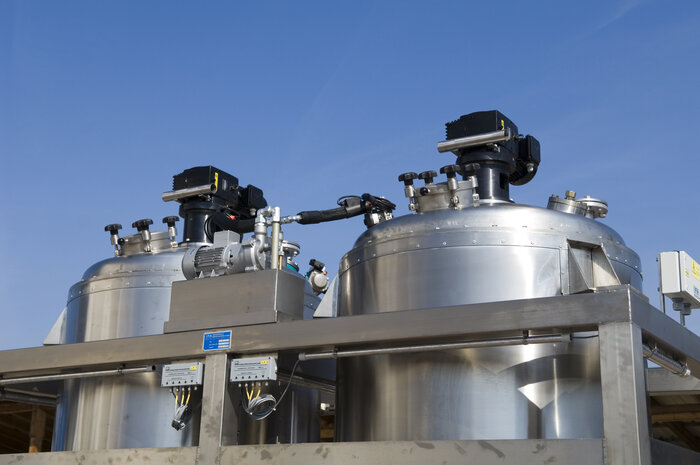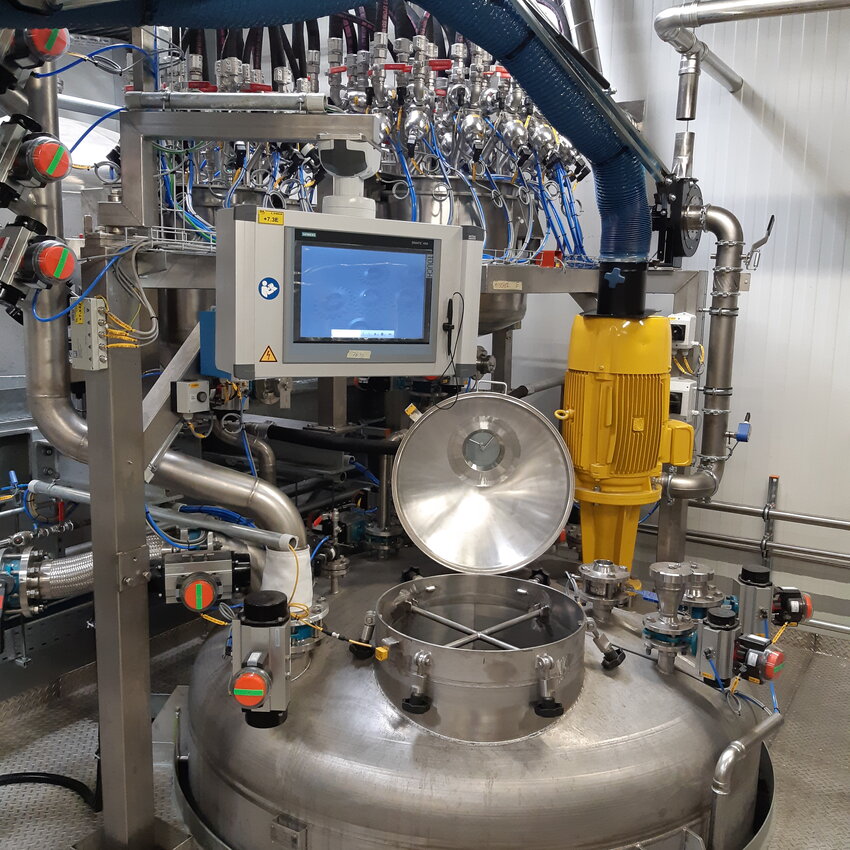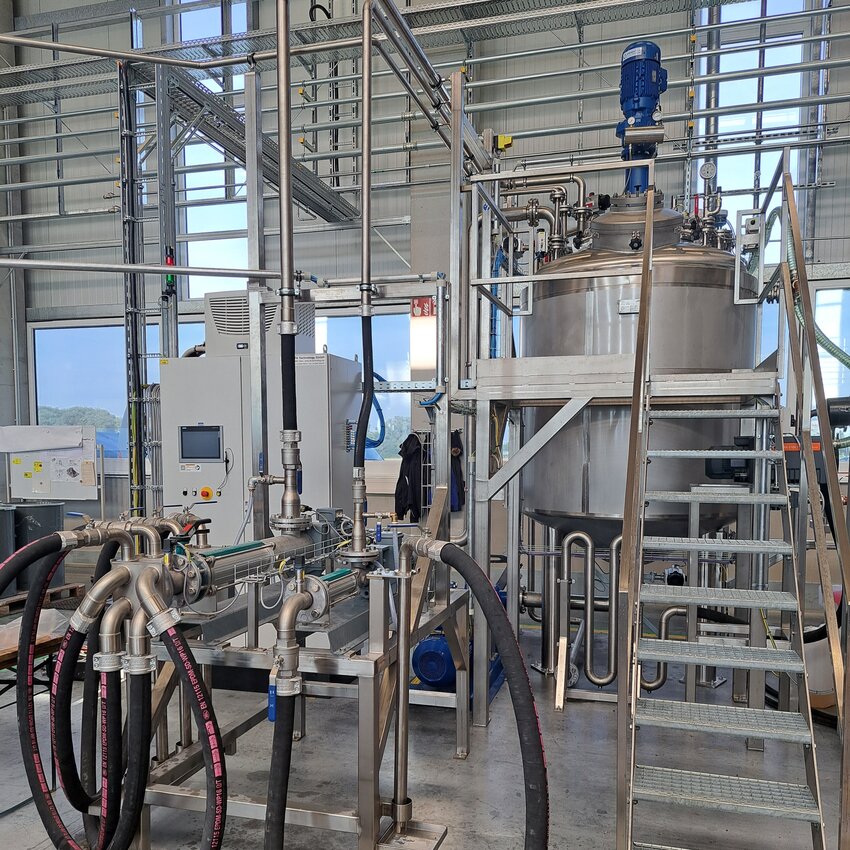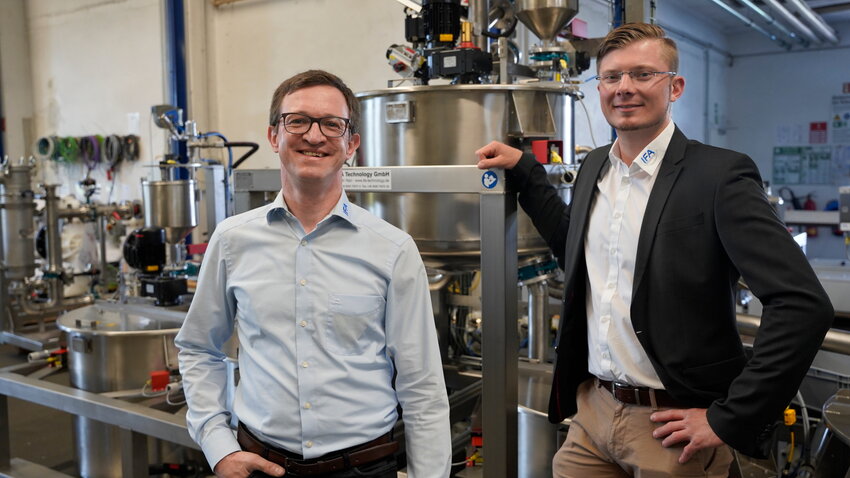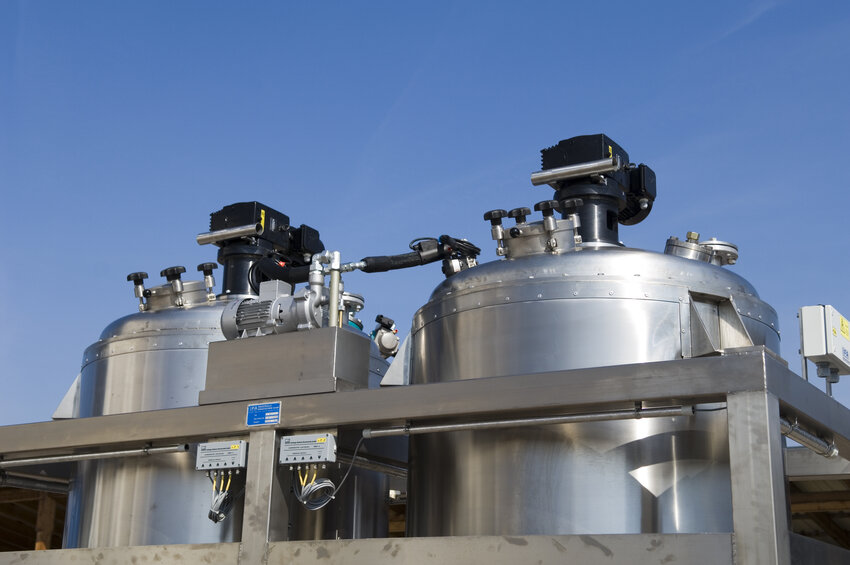Vacuum mixing systems use an innovative vacuum system to remove the air from the mixing chamber. This vacuum mixing technology is particularly suitable for viscous, highly sensitive or air-sensitive materials, as it prevents air bubbles or impurities from entering the product. The so-called “evacuation” (vacuum drawing) allows processes such as the condensation of water to be carried out efficiently even at low temperatures, which saves both time and energy.
Another advantage of this technology is that liquids or solids can be conveyed into the mixing tank without additional equipment - this saves costs and simplifies the entire process. The vacuum mixer ensures even distribution of the ingredients and prevents the formation of bubbles, oxidation or the influence of humidity. This is particularly important in sensitive areas such as the pharmaceutical and food industries, where the highest quality and purity of the end product is required.



